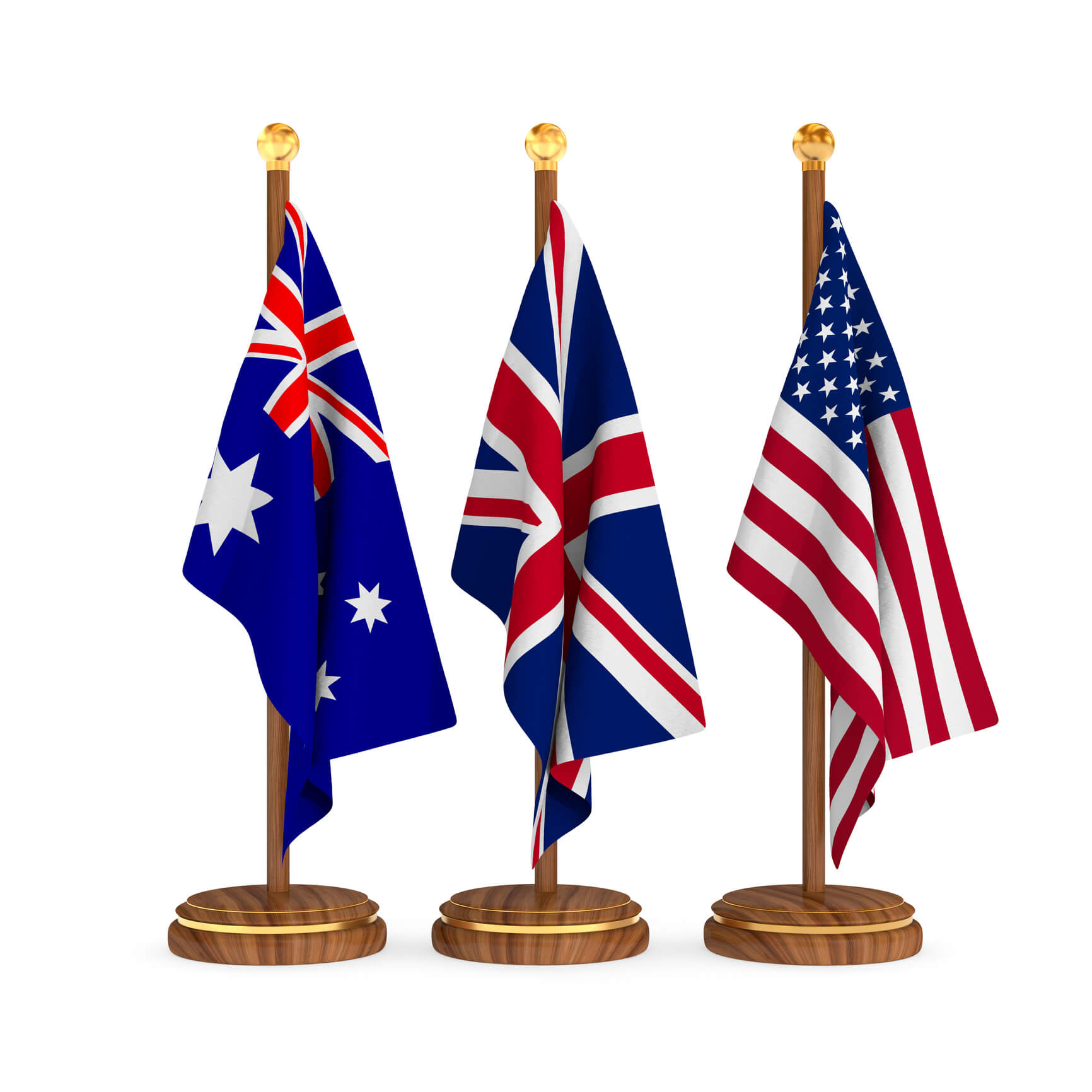Odgers Berndtson hosted “New Waters: Navigating Trilateral Collaboration in AUKUS,” a panel discussion exploring how the defense partnership between the United States, the United Kingdom, and Australia will evolve over the next decade.
Odgers Berndtson hosted “New Waters: Navigating Trilateral Collaboration in AUKUS,” a panel discussion exploring how the defense partnership between the United States, the United Kingdom, and Australia will evolve over the next decade. Mercedes LeGrand, Head of Odgers Berndtson’s Global Aerospace, Defense, & Security Practice joined Julia Soutter, Head of Industrial Practice in Australia, and New Zealand, to host three panelists:

AUKUS is a true mission-focused, rare partnership – where one can’t see where government ends, and industry begins.
Background of AUKUS
Acknowledging shared security concerns in the Indo-Pacific region and China’s expanding military presence, US President Joe Biden, UK Prime Minister Rishi Sunak, and Australian Prime Minister Anthony Albanese signed AUKUS in September 2021. AUKUS enables license-free defense trade between, and among, the three nations, to innovate and strengthen defense capabilities. The trilateral security partnership has two pillars of focus: Pillar 1 brings together all three nations to support Australia’s acquisition of nuclear-powered submarines, and Pillar 2 focuses on cyber, AI, quantum, hypersonic and counterhypersonic initiatives. Our discussion focused on Pillar 2, exclusively. As our panelists noted in the discussion, AUKUS is a true missionfocused, rare partnership – where one can’t see where government ends, and industry begins.
Main Takeaways of Discussion:
Balancing national interests with global competition
Panelists agreed that there is more than enough work to go around. As we look to Pillar 2, AUKUS forces partner nations to explore ways that each nation can complement the others in co-production, co-assembly, and co-development. Companies such as BAE are looking to a new level of collaboration and innovation brought about by the recent changes to the International Traffic in Arms Regulation (ITAR), which have created a license-free environment. Because there is no singular focus on the benefit to one country or one company alone, one panelist observed AUKUS serves as a sort of “rising tide (that) lifts all boats” in an economic sense.
Addressing cybersecurity policy for AUKUS
Panelists from both government and industry acknowledged that AUKUS (and the Five Eyes defense community at large) are fortunate to have an existing regulatory and technology environment in place that will hasten technology transfer across multi-domains. Through their different lenses, they described how AUKUS serves as a filter, with shared standards on export controls that protect all members. When transferring items or IP, AUKUS is confirms it is going to approved communities, companies, universities, etc. that are known and trusted. A battle-tested framework already exists for exchanging classified information and doing classified work between the US and UK especially, and our governments are confident in our ability to secure information with AUKUS. All acknowledged the need to stay ever-vigilant, as there is no fool-proof system, and that bad actors will most certainly be trying to use AUKUS as an opportunity to do harm.
Evolving talent demands of AUKUS
Our panelists agreed that the need to think creatively about talent acquisition, development and management has been evolving post the COVID-19 pandemic. In many ways AUKUS is an extension of current efforts to teach employees to do the basics, retrain them, and develop engineers. Many companies are developing programs that will have direct impact on addressing AUKUS talent needs: For example, QinetiQ has developed its T&E Sovereign Skills Program, where Australians can learn skills on-the-job and in practical exercises for nine to 12 months, before then returning to the Australian market to work and build industrial capability and capacity. BAE has also built a STEM program in Australia specifically focused on developing and finding more female engineering graduates (only 12% are female currently).
Success factors: Government policy vs industry co-creation and collaboration
Panelists underscored the criticality of both government and industry in supply and demand roles. For AUKUS to be successful, governments must create a regulatory environment that allows collaboration to happen, and governments must take responsibility for creating demands. The defense and industrial base serve the needs of the warfighter and joint national security interests and must make a business case to continue to develop. Neither the supply nor demand sides can break down, and both are necessary to have a successfully functioning AUKUS.
Challenges and promises for AUKUS
Panelists shared in a joke that the largest challenge to AUKUS might be time zones, and there is truth in all jests! On a more serious note, they also commented on the importance of maintaining a long-term focus on building industry across the three nations, and a commitment to upskilling the workforce. Panelists noted that quantum and undersea surveillance and autonomy were areas of great promise to warfighters. There was discussion of how bi- and tri-lateral partnerships are already making new technologies available to all partners, in particular around hypersonics and counter-hypersonics and other areas where one partner or another already has significant lead times in development.
For AUKUS to be successful, governments must create a regulatory environment that allows collaboration to happen, and governments must take responsibility for creating demands.



